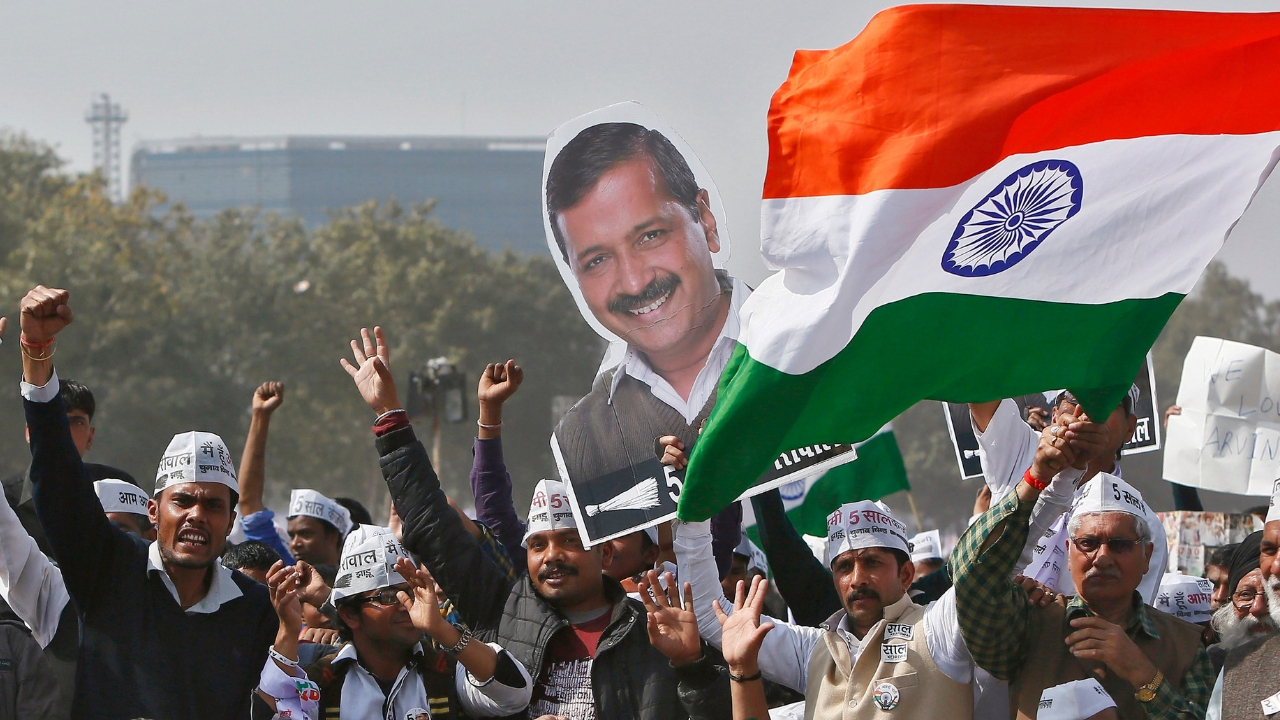Delhi Assembly Election, Trilokpuri Assembly Elections 2020 | The Trilokpuri Assembly constituency in Delhi will vote on 8 February along with 69 other constituencies in the single-phase Assembly polls to be held in the National Capital. Counting of votes will be conducted on 11 February.
Results in the last three elections
AAP’s Raju Dhingan won in the 2015 Assembly poll, defeating BJP’s Kiran Vaidya by almost 30,000 votes. Dhingan had also emerged victorious in 2013 against then sitting BJP MLA Sunil Kumar, with a margin of almost 18,000 votes. In the 2008 polls, Sunil Kumar claimed the seat after defeating Congress’ Anjana.
No party can consider Trilokpuri a safe seat as it has elected a different candidate three out of five times.
AAP has fielded Rohit Kumar Mehraulia in place of Dhingan in the 2020 polls. Meanwhile, BJP has given the ticket to Kiran Vaidya. Congress has fielded Vijay Kumar from Trilokpuri.
Representational image. Reuters
Demography
Trilokpuri assembly constituency is a part of East Delhi (Lok Sabha constituency). Trilokpuri is a resettlement colony of residents who were rehabilitated when nearby slums were cleared out in 1975-76. The constituency is reserved for Scheduled Castes.
Trilokpuri, Kotla Village, Mayur Vihar, New Ashok Nagar, Mayur Vihar Phase 1 extension fall under this constituency
Since 1984, Trilokpuri has witnessed communal tensions on a regular basis.
In May last year, two cows were found dead under mysterious circumstances, following which deployment of police personnel was increased as a precautionary measure. The area houses a significant population of Dalits and Muslims. It has seen communal tensions, with the most intense stand-off seen during the 2014 riots, when members of the Hindu and Muslim community clashed after a group allegedly began building a temple near a mosque. A curfew was imposed at the area for a month and a half.
The neighbourhood saw one of the worst episodes of the anti-Sikh riots in 1984, witnessing 350 of the more than 2,700 Sikh deaths.
Residents of the area expressed their anger towards the Delhi Metro too, which looked at relocating residents of 108 plots to construct a stretch between Trilokpuri and Mayur Vihar Pocket-I on the Pink Line. The Delhi High Court had to intervene in the matter, in response to a petition by residents. The court said that executing “projects for public good” cannot mean residents are uprooted.
Following is a brief description of the Assembly constituency (as of 2015):
Constituency number: 55
Total electors: 1,78,214
Male: 98,816
Female: 79,376
Transgender: 22
Voter turnout in last Assembly Election: 71.71 percent
Polling stations: 158
Major parties in the fray: AAP, BJP, Congress, Bahujan Samaj Party, Shiromani Akali Dal
In 2015, the Assembly polls in delhi were held on 7 February and the result was announced on 10 February. The Aam Aadmi Party secured an absolute majority in the assembly, winning 67 of the 70 seats, while the BJP secured a victory in just three constituencies. Parties like the Congress, which was in power in the capital between 1998 and 2013 for three terms, BSP, Shiromani Akali Dal and Indian National Lok Dal had secured no victories.
The ruling AAP is looking at a return in the high-stake 2020 Assembly polls, even as the BJP has its eyes on the national capital, with Prime Minister Narendra Modi having sounded the election bugle at a mega rally in Delhi’s Ramlila Maidan, which focused mainly on the issue of regularising 1,731 unauthorised colonies.
The AAP tied up with Prashant Kishor’s Indian Political Action Committee, credited for propelling Modi-led BJP to a victory in 2014, for the polls next month. Kishor took to Twitter to write, “Get ready to see the power of people on Tuesday, 11 February!” On 20 December last year, Delhi Deputy Chief Minister Manish Sisodia launched the slogan, ‘Acche beete paanch saal-Lage raho Kejriwal’ (the last five years went well, keep going Kejriwal), kickstarting the party’s campaign.
Meanwhile, the Congress is fighting for survival in Delhi, with the absence of strong leadership within the party.
Touted to be a two-sided battle, both the AAP and BJP are expected to focus on local issue, as opposed to the saffron party’s previous election pitches based on national issues like demonetization, surgical strikes and Citizenship (Amendment) Act. In the recent Assembly elections in Haryana, Maharashtra and Jharkhand, the BJ’s vote share reduced significantly, even as the party failed to secure a majority in a single state since Gujarat election in 2017.
In the Lok Sabha polls held last year, BJP won in all the seven parliamentary constituencies in Delhi. The term of the 70-member Delhi Assembly is ending on 22 February.
A total of 1.46 crore voters can exercise their franchise in the upcoming Delhi Assembly elections, according to the final electoral list for Delhi published on 5 January, on the day the election dates were announced. The number of service voters are 11,556. Chief Electoral Officer (CEO) Delhi Ranbir Singh said the final publication of voters list shows there are total 1,46,92,136 voters in Delhi, including 80.55 lakh males and 66.35 lakh females.
A new concept of absentee voters, enabling those voters to take part in polls who are not able to come to polling stations due to physical circumstances or unavoidable reasons, has been introduced. Disabled persons and senior citizens above 80 years can either vote in person or vote through postal ballot. About 90,000 officials will be deployed for the conduct of elections and the number of polling booths in 2019 were 13,750. Out of the 70 Assembly constituencies in the state, 12 are reserved for Scheduled Castes and none are reserved for Scheduled Tribes.
With inputs from PTI


